Best Sites for Irish Genealogy Records
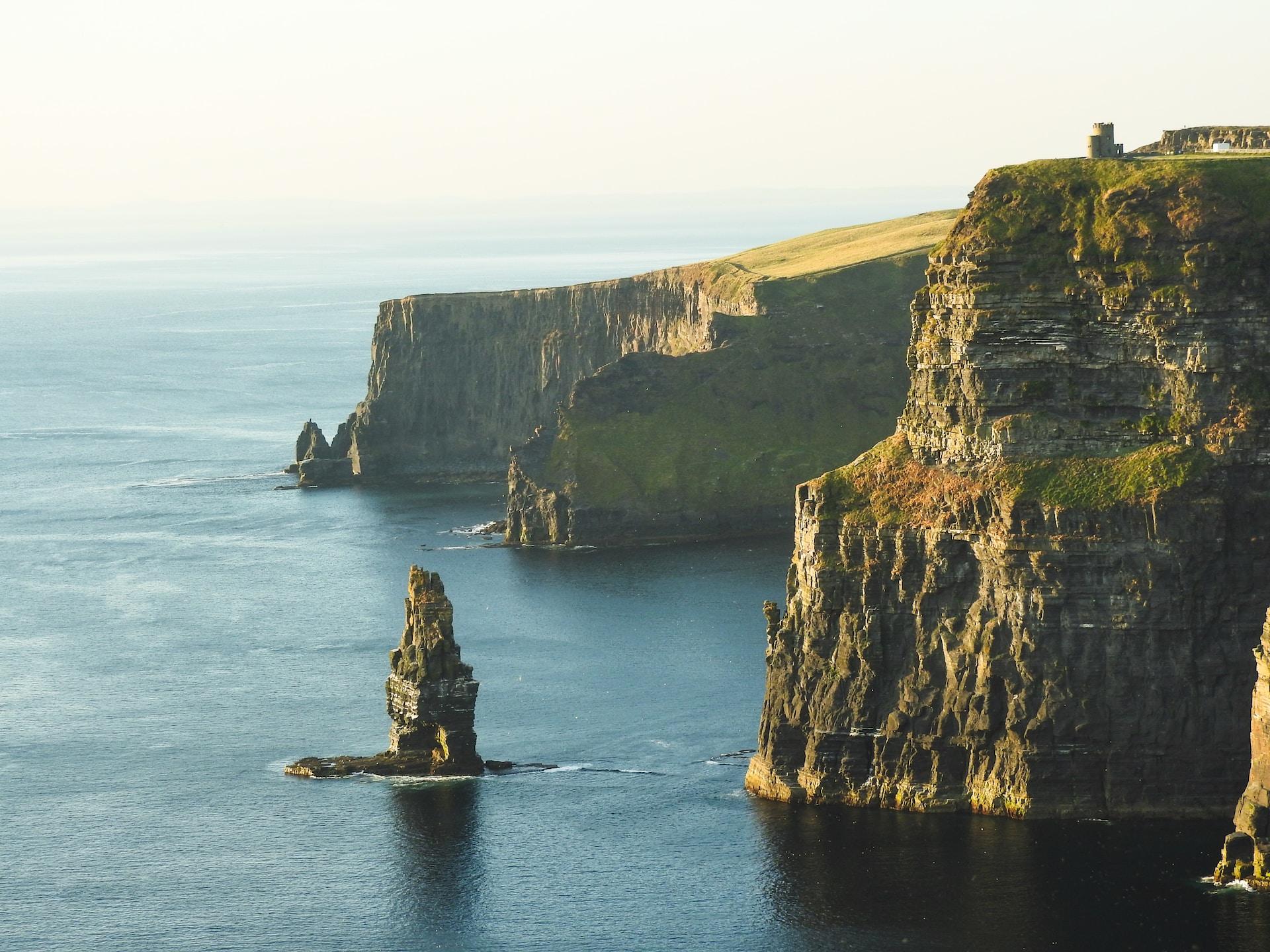
Ireland's Human History
Prehistoric Ireland
Up until around 16,000 BC the region we today know as Ireland would have been covered in a sheet of ice. As the last glacial ice age came to end this ice sheet would have receded. Although there was no land bridge between the UK and Ireland at that time an ice bridge would remain for thousands of years. The last vestiges of this bridge would have linked Scotland to Northern Ireland and did not fully disappear until around 12,000 BC.
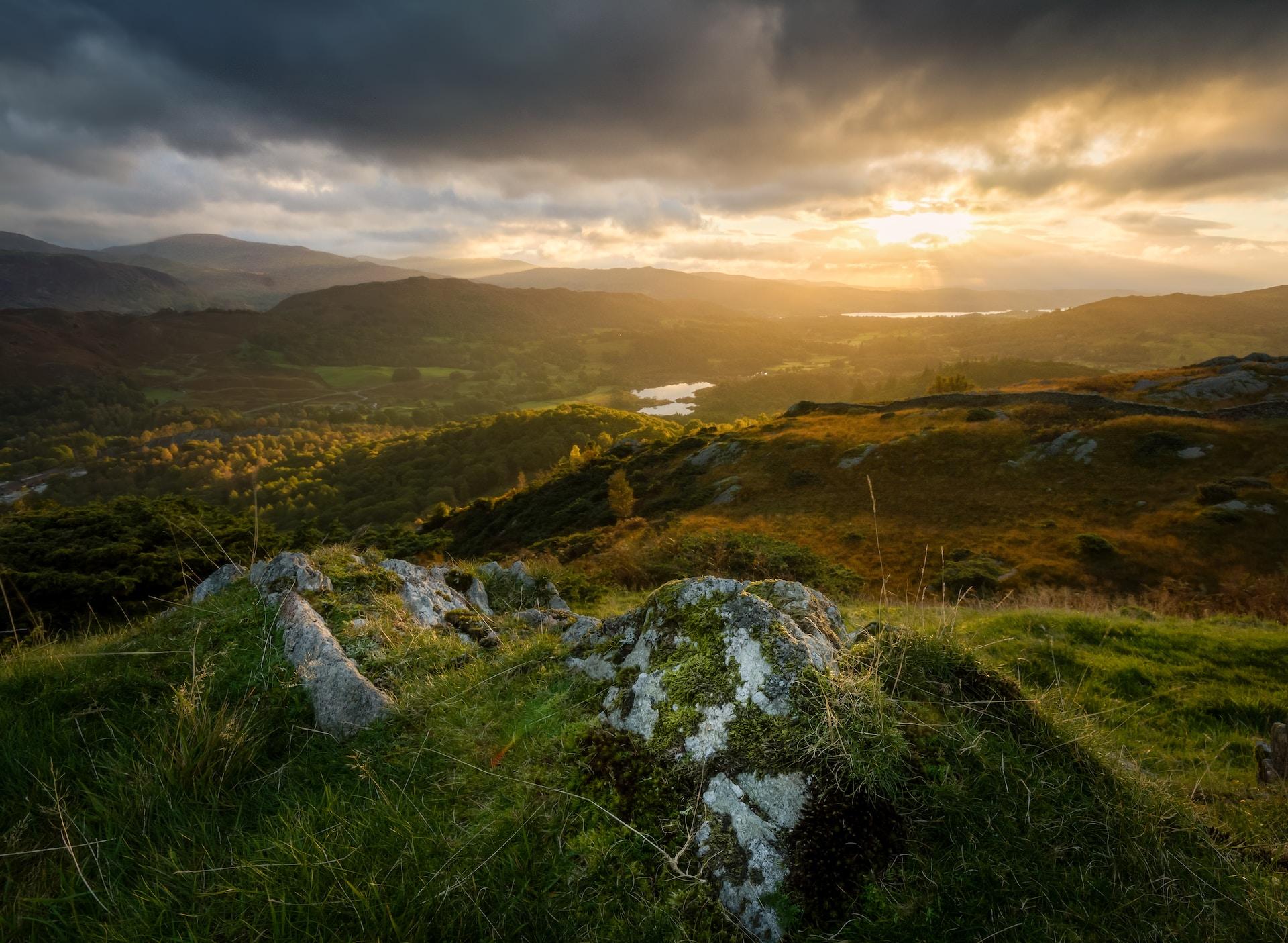
Until recently the earliest indications of human activity in Ireland dated back to around 12,500 BC and was in the form of a bear bone that showed signs of having been butchered with primitive tools. However new finds in 2021 suggest a presence of humans in the region up to 33,000 years ago.
Sustained Occupation and Agriculture
It was around 8,000 BC that signs of sustained occupation started to develop in the region with signs of settled communities found around the island. It would be roughly 4,000 years later that neolithic settlers would start to show signs of agriculture and domestication of animals. Proof of stone monuments and large timber buildings are evidence of a shift in society in the region.
The Celts
Today Ireland is considered a very Celtic region but the Celts did not actually arrive from Mainland Europe until fairly recently. It is thought the Celts arrived through four separate invasions by Celtic tribes. These were the Priteni, Belgae (northern Gaul), Laighin tribes (Brittany region), and Milesians (either northern Iberia or southern Gaul)
The second wave of invasion in the form of the Belgae happened around the sixth century BC and the lack of evidence for a mass migration supports the theory that it was a gradual occupation by various tribes in separate invasions.
The Romans
The Roman Empire arrived on the shores of Britain in 43AD and quickly made their presence felt. Scotland and Ireland were targeted by the Romans but they did not make a serious effort to invade and occupy.
Ireland would remain a Celtic stronghold while in most of the rest of Britain Rome stamped out the culture. The languages and culture still thrived in the region and in many respects still do today.
The Normans
In 1169, an expedition of Cambro-Norman knights, with an army of about 600 men, made landfall at Bannow Strand in what is present-day County Wexford. This was led by Richard de Clare, also known as 'Strongbow' owing to his archery prowess. The invasion, which coincided with a period of renewed Norman expansion, was at the invitation of Dermot Mac Murrough, the King of Leinster.
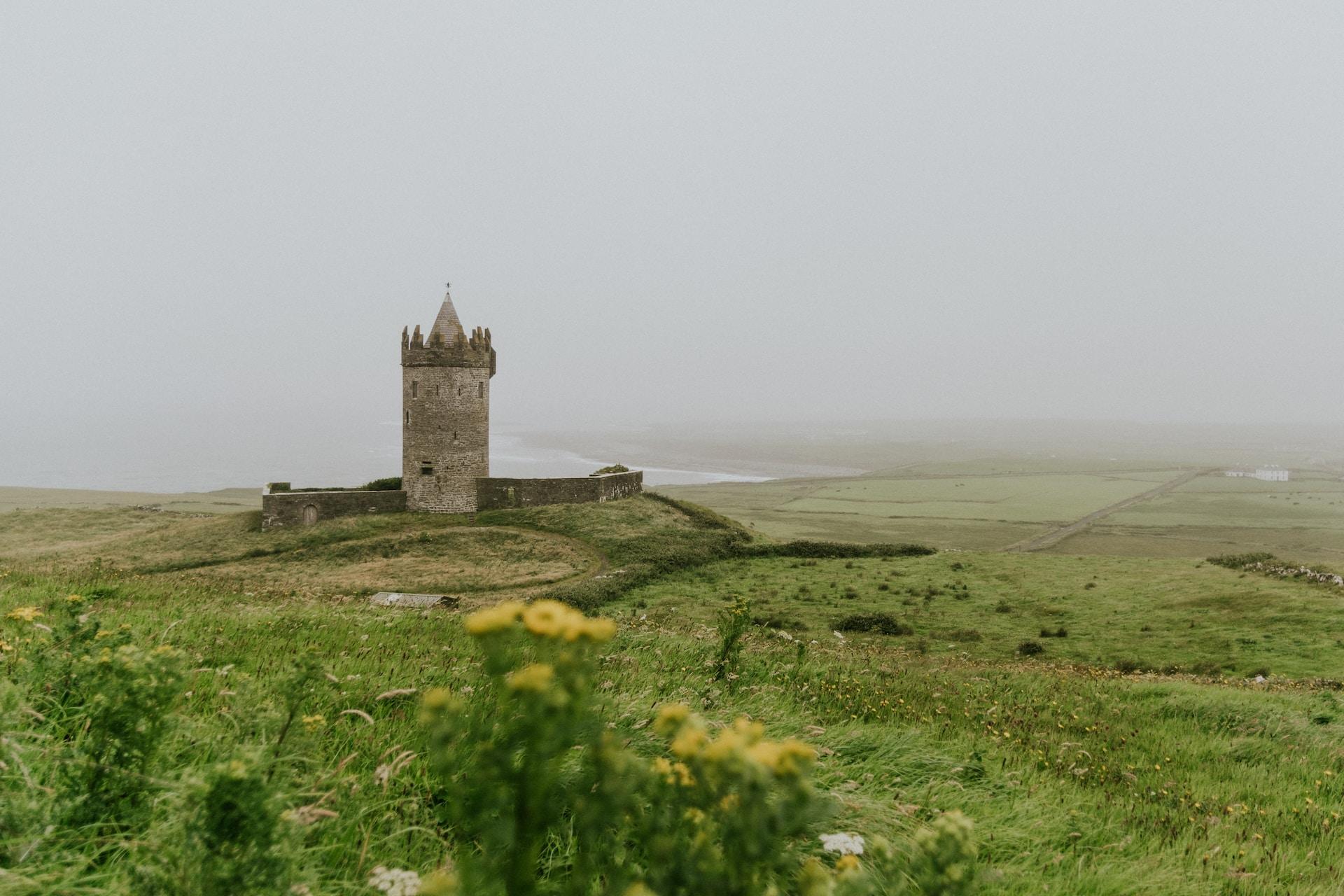
This would be the beginning of centuries of invasion and subjugation of the peoples of Ireland which saw powers from England seeking and gaining control. Battles and conflicts would take place over centuries and occupation by the British saw widespread poverty and hardships.
An Independent Ireland
For many years the whole of Ireland was part of a Union under the monarchy of England but the treatment of its peoples was poor and dissent grew. In the early 20th century a series of uprisings and opposition groups against the British arose.
This was a time of turmoil in Ireland which saw violence and retribution but would ultimately after a long struggle see the creation of the Republic of Ireland and Northern Ireland. The British agreed to a treaty that allowed Southern Ireland to become its own nation but they maintained a presence in the northeast with the creation of Northern Ireland something that would be a source of conflict for many more decades and even to a degree today.
Irish Migration
Irish migration around the world has been taking place for centuries with early settlements of raiding Irish during the Roman period seizing lands in coastal regions of Britain. A region wracked with conflict and later British occupation, the Irish have been leaving the Island in waves in search of work and better conditions.
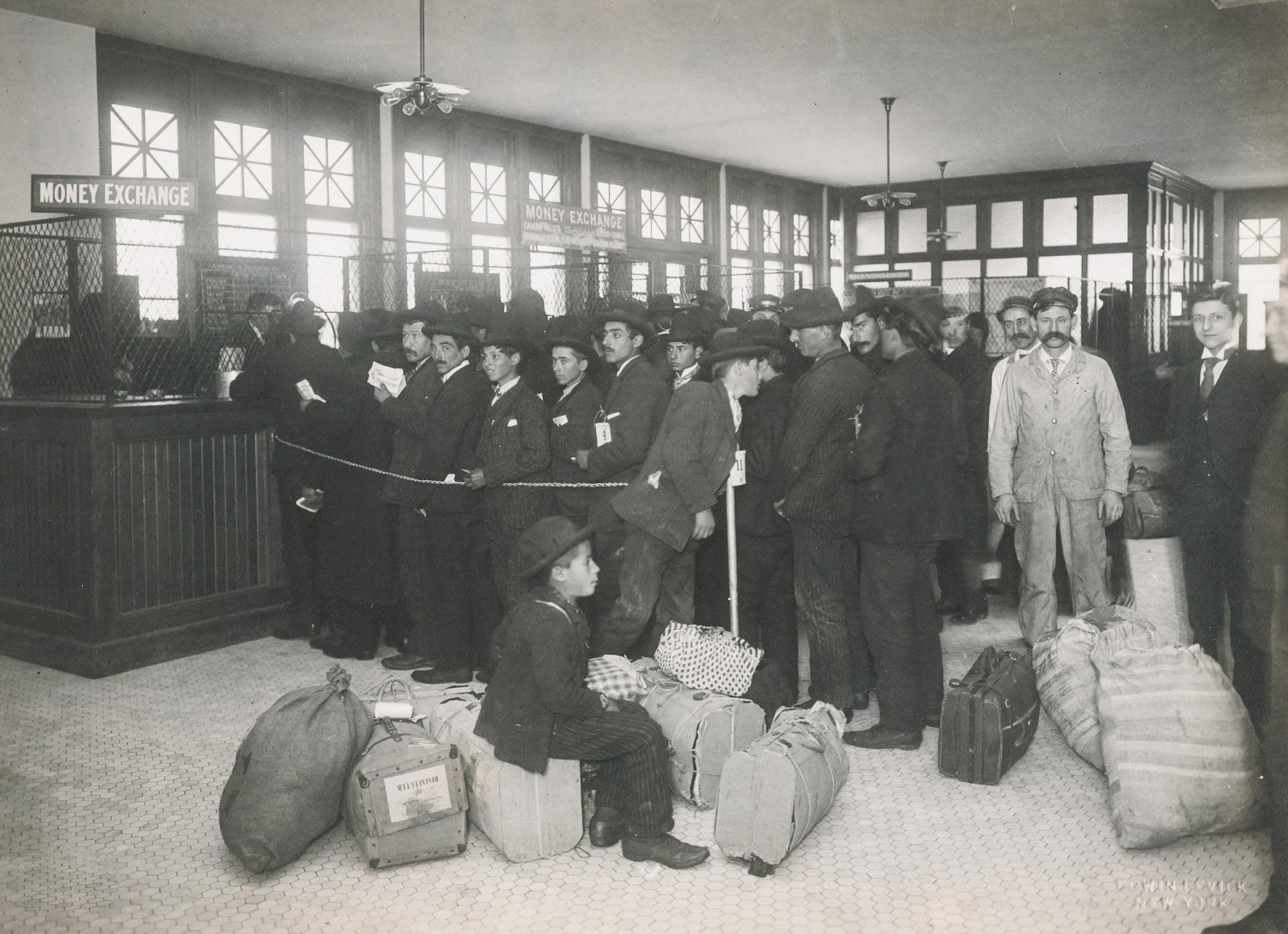
Fleeing brutal rule by Britain, civil wars and devastating famines, the Irish have made a huge impact on the world and especially in the United States where millions of people identify as Irish American.
The Challenges of Researching Irish Ancestry
I can tell you from personal experience working on projects that required Irish genealogy research it is challenging to find records. There are several issues which make it hard to research Ireland genealogy.
Lack of Census Records
In 1922 a fire at the Public Records Office of Ireland destroyed all but a few fragments of the majority of Ireland's 19th century census records. So whereas in the UK and US you can potentially track the movements and growth of your ancestors family in decade long increments you can not do this for Ireland.
Civil Registration Came Along Relatively Late
Compared to the UK Ireland's compulsory vital records reporting started later with births and marriages starting registration from 1864 onwards. It is important to note that non-Catholic marriages were registered from 1845 but it was Catholic marriages that started registration in 1864.
Prior to this records were kept and recorded at the parish church level and would remain so in many cases.
Changing Place Names
A huge issue when researching Irish genealogy is its turbulent past which has resulted not only in a multitude of place names but many name changes which can cause confusion for researchers.
Naming Practices
Traditional naming practices have also been a source of frustration for researchers with the all too common issue of too many individuals with the same name in the same area. As an example the general trend followed:
- The eldest son would be named after his paternal grandfather
- The second son would be named after his maternal grandfather
- The third son would be named after his father
- The fourth son would be named after his father’s oldest brother
As a result the same names can pop up in the same family generation after generation. This becomes confusing and leads to issues of not being able to uniquely identify an individual.
Best Sites for Irish Genealogy Research
There are plenty of websites that hold decent collections of the available genealogy records for Ireland; some are free while others will cost money. You will likely find that certain records are going to cost you money so be prepared for this.
Ancestry.com
An all access membership with Ancestry.com will open up a world of records including several collections from Ireland including the limited available census records, civil registrations, court records, church records and immigration papers to name but a few.
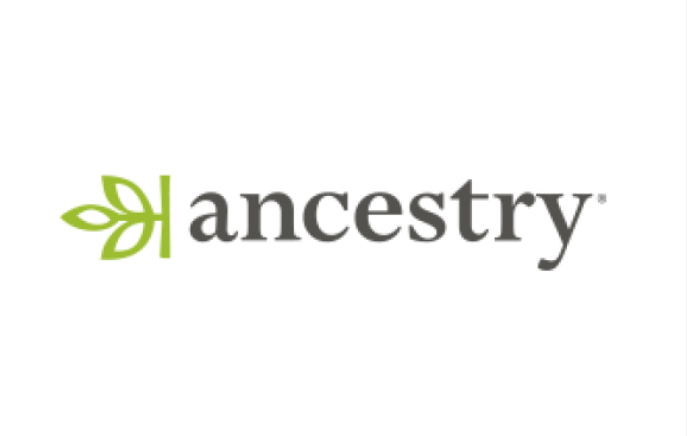
You might be able to find high quality scanned images of records or at least a well transcribed depiction of what the original document indicated.
Familysearch.org
This website is completely free to use and is the most similar that you will find to any of the main paid sites such as Ancestry or MyHeritage. It is a non-profit organization that was created by the Latter Day Saints Church.
You can build your tree through this site and have access to a wide variety of records from their library. It may not be as user friendly and slick as the big sites but its resources are extensive. In fact, a lot of the content found on Ancestry, findmypast and MyHeritage originates from a deal they made with familysearch.org.
You can find similar records from Ireland on this site as you might on Ancestry.com which in fact may get some of its own collections from FamilySearch. As might be expected, coverage of records is a little spotty but this may still be a great resource.
The search functions are similar to sites like Ancestry but you do have to sometimes browse through images of records in search of the one you are seeking. If you do not mind a little extra leg work this is likely the best free site for genealogy research.
Findmypast
A British based website Findmypast unsurprisingly has the largest online collection of Irish records you are likely to find anywhere. A subscription to this site opens up vital, parish and census records which may be helpful in researching your family history.
This website also has a fast growing collection of digitized newspapers dating back to the 1700s which may hold some family history gold or at least historical context that may pertain to the life and struggles of your Irish ancestors.
General Register Office of Northern Ireland (GRONI)
You may locate vital record listings on other sites but they will not likely give you an image of such a record. For this you may need to order copies of birth, marriage and death records. And if these took place in Northern Ireland you can order such documents from the GRONI.
This site's available records include birth certificates dating 1864 to 100 years ago, marriage records from as early as 1845 to 75 years ago, and death certificates from 1864 to 50 years ago. You will have to register with the website and there will be fees for looking up and issuing copies of the appropriate vital records.
AncestryIreland.com
Just to clarify this is not a regional version of Ancestry.com it is a distinct site which is home to the Ulster Historical Foundation (ULF). They are an educational charity from Belfast who also serve as the membership arm of the Ulster Genealogical and Historical Guild.
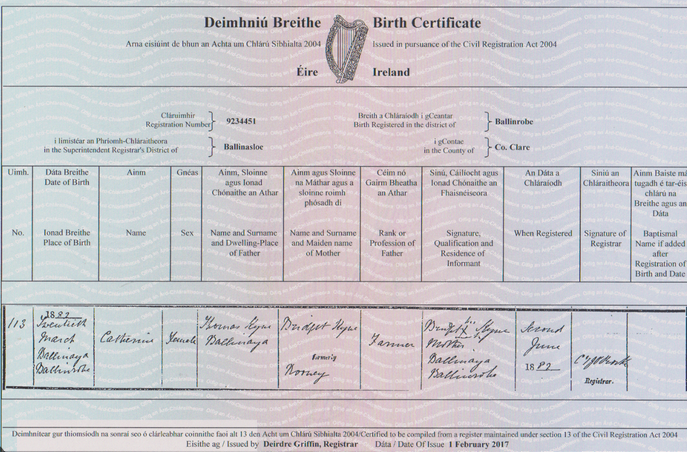
This is a pay-per-view site which rather than having a subscription charges for each record you look at. Such records may include transcribed parish records from several counties.
IrishGenealogy.ie
This is likely one of the best websites for Irish genealogy websites with record collections dating back to the 17th and 18th centuries. It is home to the only official version of Ireland’s civil registration indexes for birth, marriage and death.
Final Thoughts
Irish records are notoriously thin in the ground due to the troubles faced in the region historically speaking. Major life events could easily go unreported in official terms especially among the poorer citizens of Ireland.
Genealogy in Ireland takes patience and a lot of concentration especially when you might find multiple cousins born around the same time with the same name in the same area. It can be frustrating and all too often end in a brick wall but there are some great sites that can help you find whatever is available.
Link To or Reference This Page
We spent a lot of time downloading, cleaning, merging, and formatting the data that is shown on the site.
If you found the data or information on this page useful in your research, please use the tool below to properly cite or reference Name Census as the source. We appreciate your support!
-
<a href="https://namecensus.com/blog/best-sites-for-irish-genealogy-records/">Best Sites for Irish Genealogy Records</a>
-
"Best Sites for Irish Genealogy Records". NameCensus.com. Accessed on April 27, 2024. https://namecensus.com/blog/best-sites-for-irish-genealogy-records/.
-
"Best Sites for Irish Genealogy Records". NameCensus.com, https://namecensus.com/blog/best-sites-for-irish-genealogy-records/. Accessed 27 April, 2024
-
Best Sites for Irish Genealogy Records. NameCensus.com. Retrieved from https://namecensus.com/blog/best-sites-for-irish-genealogy-records/.
